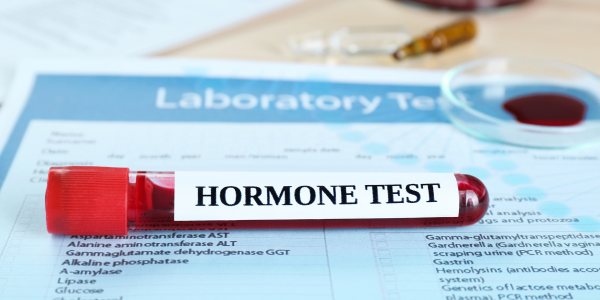

Let’s talk all about the gut microbiome. I know we throw that term around a lot in functional medicine, and it is so super important, but I want to go over what the gut microbiome is, what it plays a role in, and what are some processes that we can modify, some disease risks that we can take control of by getting our gut microbiome in check.
Gut Microbiome
So the gut microbiome is made up of trillions of bacteria. That’s trillions with a T. There’s a debate on how many trillion it is exactly, but we do know that there are more cells in the gut microbiome than make up our own human cells. So there are more bacteria and microbes in there than make up us. So the gut microbiome really does function as an organ. We know, of course, it plays a huge role in the immune system, right? You probably heard me say more than one time that 70% to 80% of your immune system is located in the gut. And of course, the gut microbiome obviously plays a role in nutritional digestion and absorption, but it also plays a role in metabolism and production of certain nutrients and other substances. And it also plays a role in production and metabolism of neurotransmitters, so things like dopamine and serotonin, for example. And it also plays a role in production and metabolism of hormones. Estrogen has been a pretty well-studied one that is affected by the gut microbiome.
Your Health and Your Gut Microbiome
So there are some great studies out there that show that changes in the gut microbiome can alter your susceptibility to certain diseases. Some of the really well-studied ones are, of course, obesity, metabolic syndrome, irritable bowel syndrome, and even cardiovascular disease. There’s some great studies on the microbiome and heart failure and increased incidence of cardiac events.
So going back to a good… I want to give you a good list of diseases and conditions that have been studied to have a proposed gut microbiome-associated pathology. So of course, anything in the immune system or autoimmune disease realm, think microbiome first. So that’s why in functional medicine, we’re always all about the gut and gut testing and getting your nutrition straightened away, because we do want to feed the gut microbiome in a good, healthy way, right? I’ll talk a little bit more about that in a minute.
But immune-mediated and autoimmune diseases, so inflammatory bowel diseases, of course, celiac disease, Crohn’s, ulcerative colitis, lupus, even type I diabetes, rheumatoid arthritis, IgA deficiencies, autoimmune disease of the liver… And so the list is quite long for autoimmune diseases, but pretty much all of them have an association with the gut microbiome.
Metabolic and cardiovascular disorders, I kind of already mentioned those previously, but obesity, type II diabetes, high blood pressure, atherosclerosis so laying down plaques in the arteries. Cancers, there is an association with an altered gut microbiome and colon cancer. Things in the neurological and psychiatric realm like, of course, depression, Parkinson’s disease, Alzheimer’s, autism, all associated with changes in the gut microbiome. And even infectious diseases. So there are studies on HIV especially and also certain infections that can be hospital-acquired like C. diff, for example, or those infections that appear more commonly in those who are immune-suppressed, because again, 70% to 80% of your immune system is located in the gut. But there’s even some studies on other things that you might not expect, like chronic kidney disease, for example, liver diseases, and of course other infectious diseases as well. So the list is quite long of things that your microbiome can play a role in.
Where Functional Medicine Fits In
The microbiome also plays a role in your health and aging. There was a really great study that showed that those who had healthy aging had less pathogens in their gut microbiome, so less bad guys, so to speak, and more good guys, less inflammation, and therefore they aged healthier, meaning they had less frailty and less degeneration. So those are some really important, key things to consider when you’re evaluating the gut microbiome.
So again, that’s one of the reasons in functional medicine why we really like to do our stool studies. You have several different options of ways to do that, but the stool studies look at what’s going on in the large intestine and give us the best evaluation of the gut microbiome. If we think you have something going on in the small intestine like SIBO or IMO, of course we’re going to want to do a breath test. And then there’s some other ancillary testing that we can do as well that give us reflections of things that might be going on in the gut. Because, for example, yeast overgrowth is relatively difficult to see in a stool study. You’re definitely not going to pick it up in a breath test that doesn’t even test for anything like that. So sometimes we look at metabolite markers to see if there may be a yeast overgrowth problem, for example.
So this was just a little synopsis on the importance of the gut microbiome, what it is, what things are affected by it, and what we can do to test it. This is Dr. Emily Parke.
Part II: Root Causes of Gut Symptoms
Share:
Dr. Emily Parke
Social Media
Most Popular Posts
Subscribe To Our Newsletter
Related Posts

New Podcast Episode: My journey into functional medicine + what I’ve learned
I’m excited to share that I recently joined DeLo for Episode 165 of the On the DeLo podcast! In this conversation, we explored my journey

Understanding the Essential Labs for Women on Hormone Replacement Therapy (HRT)
So what are the minimum labs we’re looking at when we do hormone replacement therapy? We obviously want to look at an estrogen level, so

How to figure out the right amount of HRT in women
What about checking lab values when you’re on hormone replacement therapy? I do find it to be helpful, but we also want to consider symptoms.

Did you know there’s a difference between food allergies, sensitivities, and intolerances?
Did you know that there’s a difference between food allergies, food sensitivities and food intolerances? Food allergies, the reactions tend to happen pretty immediately and
